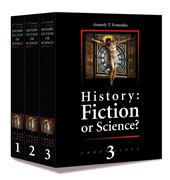History Online - Philosophy
[an error occurred while processing this directive]Jean-Jacques Rousseau
1712 - 1778
Jean-Jacques Rousseau was born on June 28, 1712 in Geneva, Switzerland. His mother died shortly after his birth. When Rousseau was 10 his father fled from Geneva to avoid imprisonment for a minor offense, leaving young Jean-Jacques to be raised by an aunt and uncle. Rousseau left Geneva at 16, wandering from place to place, finally moving to Paris in 1742. He earned his living during this period, working as everything from footman to assistant to an ambassador.
Rousseau's profound insight can be found in almost every trace of modern philosophy today. Somewhat complicated and ambiguous, Rousseau's general philosophy tried to grasp an emotional and passionate side of man which he felt was left out of most previous philosophical thinking.
In his early writing, Rousseau contended that man is essentially good, a "noble savage" when in the "state of nature" (the state of all the other animals, and the condition man was in before the creation of civilization and society), and that good people are made unhappy and corrupted by their experiences in society. He viewed society as "articficial" and "corrupt" and that the furthering of society results in the continuing unhappiness of man.
Rousseau's essay, "Discourse on the Arts and Sciences" (1750), argued that the advancement of art and science had not been beneficial to mankind. He proposed that the progress of knowledge had made governments more powerful, and crushed individual liberty. He concluded that material progress had actually undermined the possibility of sincere friendship, replacing it with jealousy, fear and suspicion.
Perhaps Rousseau's most important work is "The Social Contract" that describes the relationship of man with society. Contrary to his earlier work, Rousseau claimed that the state of nature is brutish condition without law or morality, and that there are good men only a result of society's presence. In the state of nature, man is prone to be in frequent competition with his fellow men. Because he can be more successful facing threats by joining with other men, he has the impetus to do so. He joins together with his fellow men to form the collective human presence known as "society." "The Social Contract" is the "compact" agreed to among men that sets the conditions for membership in society.
Rousseau was one of the first modern writers to seriously attack the institution of private property, and therefore is considered a forebear of modern socialism and Communism (see Karl Marx). Rousseau also questioned the assumption that the will of the majority is always correct. He argued that the goal of government should be to secure freedom, equality, and justice for all within the state, regardless of the will of the majority.
One of the primary principles of Rousseau's political philosophy is that politics and morality should not be separated. When a state fails to act in a moral fashion, it ceases to function in the proper manner and ceases to exert genuine authority over the individual. The second important principle is freedom, which the state is created to preserve.
Rousseau's ideas about education have profoundly influenced modern educational theory. He minimizes the importance of book learning, and recommends that a child's emotions should be educated before his reason. He placed a special emphasis on learning by experience.
The central concept in Rousseau's thought is "liberty," and most of his works deal with the mechanisms through which humans are forced to give up their liberty. At the foundation of his thought on government and authority is the idea of the "social contract," in which government and authority are a mutual contract between the authorities and the governed; this contract implies that the governed agree to be ruled only so that their rights, property and happiness be protected by their rulers. Once rulers cease to protect the ruled, the social contract is broken and the governed are free to choose another set of governors or magistrates. This idea would become the primary animating force in the Declaration of Independence , which is more or less a legal document outlining a breach of contract suit. In fact, all modern liberation discourse at some level or another owes its origin to The Social Contract and Rousseau's earlier treatise, The Discourse on Inequality .
The first man who, having enclosed a piece of ground, bethought himself of saying "This is mine," and found people simple enough to believe him, was the real founder of civil society. Humanity would have been spared infinite crimes, wars, homicides, murders, if only someone had ripped up the fences or filled in the ditches and said, "Do not listen to this pretender! You are eternally lost if you do not remember that the fruits of the earth are everyone's property and that the land is no-one's property!" But by that point things had changed so drastically that there was no turning back, for this idea of "property," which develops out of prior ideas, did not form spontaneously in the human mind. Men had to progress, acquiring knowledge and arts, transmitting and increasing these from generation to generation, before they reached the last stage in the natural human state. I shall endeavor, then, to explain the progress of events and discoveries from the perspective of their natural order.

